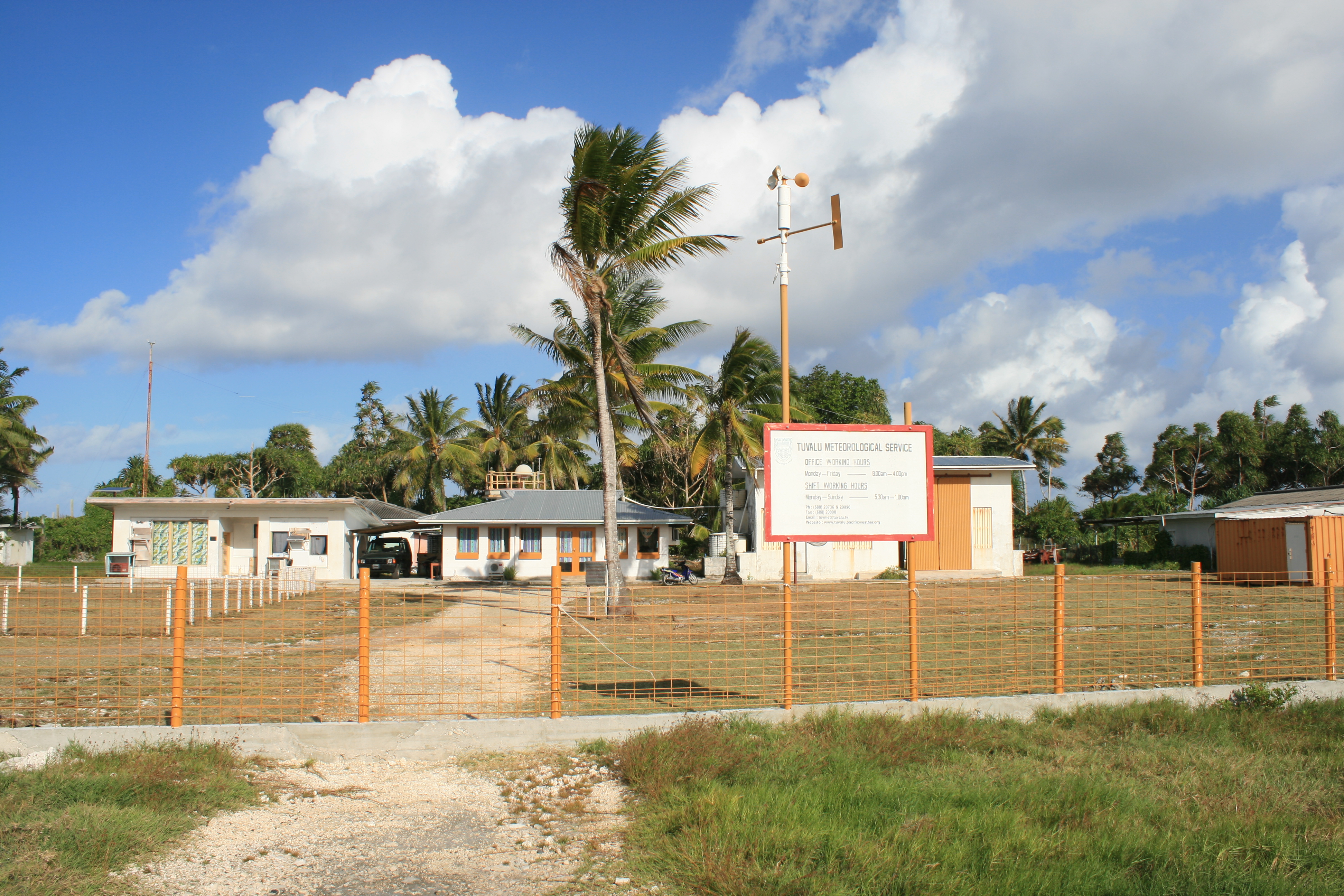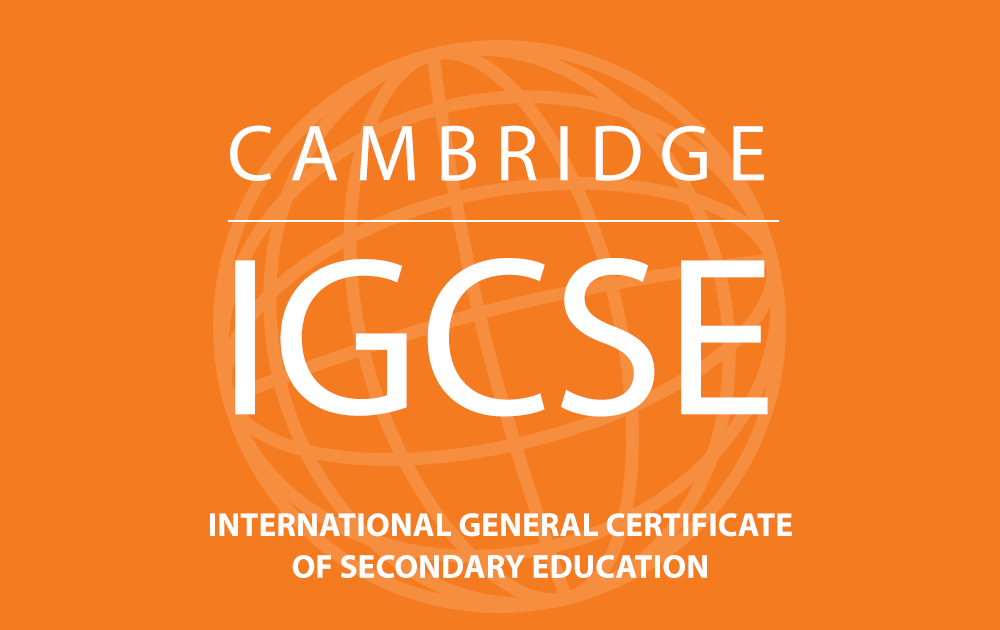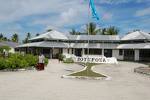|
Fetuvalu Secondary School
Fetuvalu Secondary School is a day school in the Pacific island nation of Tuvalu that is operated by the Church of Tuvalu and is located on Funafuti atoll. The school re-opened in 2003 having been closed for 5 years; the school offered Form 3 and added Forms 4 to 6 in subsequent years. From 2006, Fetuvalu offers the Cambridge syllabus. Fetuvalu follows a different curriculum to that provided by Motufoua Secondary School, which is the government school, although its education programmes are equivalent to those offered at Motufoua from Year 9 to Year 12. Fetuvalu students that want to attend university can proceed to Year 13 at the government’s Form Seven programme or students can attend the foundation programme offered through the University of the South Pacific The University of the South Pacific (USP) is a public research university with locations spread throughout a dozen countries in Oceania. Established in 1968, the university is organised as an intergovernmental organ ... [...More Info...] [...Related Items...] OR: [Wikipedia] [Google] [Baidu] |
Day School
A day school — as opposed to a boarding school — is an educational institution where children and adolescents are given instructions during the day, after which the students return to their homes. A day school has full-day programs when compared to after-school programs. A day school is a learning center whereby the learners usually goes back to their dwelling place daily and they do not dwell at the study center. It could be a secondary or tertiary day school. It could also be privately or government owned. Consequently, parents and guardians are not required to pay for accommodation and feeding fees, this is due to the non residential status of a day school. Day school helps the child to receiving a dual training from the home (parents, nuclear and extended family, friends and well wishers and from school environment (teachers, peers, and class mates) thereby helping them to practice what they have learned in school and gives them a spirit of exploration and enquiry into ... [...More Info...] [...Related Items...] OR: [Wikipedia] [Google] [Baidu] |
Church Of Tuvalu
The Congregational Christian Church of Tuvalu ( Tuvaluan: ''Te Ekalesia Kelisiano Tuvalu'', EKT), commonly the Church of Tuvalu, is a Christian Church which is the state church of Tuvalu, although this status merely entitles it to "the privilege of performing special services on major national events". Its adherents comprise about 97% of the ~11,000 inhabitants of the archipelago, and theologically, it is part of the Calvinist tradition. The Constitution of Tuvalu guarantees freedom of religion, including the freedom to practice, the freedom to change religion, the right not to receive religious instruction at school or to attend religious ceremonies at school, and the right not to "take an oath or make an affirmation that is contrary to ne'sreligion or beliefs". History Christianity first came to Tuvalu in 1861 when Elekana, a deacon of a Congregational church in Manihiki, Cook Islands became caught in a storm and drifted for eight weeks before landing at Nukulaelae.Laumua ... [...More Info...] [...Related Items...] OR: [Wikipedia] [Google] [Baidu] |
Funafuti
Funafuti is the capital of the island nation of Tuvalu. It has a population of 6,320 people (2017 census), and so it has more people than the rest of Tuvalu combined, with approximately 60% of the population. It consists of a narrow sweep of land between wide, encircling a large lagoon (''Te Namo'') long and wide. The average depth of the Funafuti lagoon is about 20 fathoms (36.5 metres or 120 feet). With a surface area of , it is by far the largest lagoon in Tuvalu. The land area of the 33 islets around the atoll of Funafuti totals ; taken together, they constitute less than one percent of the total area of the atoll. Cargo ships can enter Funafuti's lagoon and dock at the port facilities on Fongafale. The capital of Tuvalu is sometimes said to be Fongafale or Vaiaku, but, officially, the entire atoll of Funafuti is its capital, since it has a single government that is responsible for the whole atoll. Fongafale The largest island is Fongafale. The island houses four villag ... [...More Info...] [...Related Items...] OR: [Wikipedia] [Google] [Baidu] |
Tuvalu
Tuvalu ( or ; formerly known as the Ellice Islands) is an island country and microstate in the Polynesian subregion of Oceania in the Pacific Ocean. Its islands are situated about midway between Hawaii and Australia. They lie east-northeast of the Santa Cruz Islands (which belong to the Solomon Islands), northeast of Vanuatu, southeast of Nauru, south of Kiribati, west of Tokelau, northwest of Samoa and Wallis and Futuna, and north of Fiji. Tuvalu is composed of three reef islands and six atolls. They are spread out between the latitude of 5° and 10° south and between the longitude of 176° and 180°. They lie west of the International Date Line. Tuvalu has a population of 10,507 (2017 census). The total land area of the islands of Tuvalu is . The first inhabitants of Tuvalu were Polynesians, according to well-established theories regarding a migration of Polynesians into the Pacific that began about three thousand years ago. Long before European cont ... [...More Info...] [...Related Items...] OR: [Wikipedia] [Google] [Baidu] |
International General Certificate Of Secondary Education
The International General Certificate of Secondary Education (IGCSE) is an English language based examination similar to GCSE and is recognised in the United Kingdom as being equivalent to the GCSE for the purposes of recognising prior attainment. It was developed by University of Cambridge International Examinations. The examination boards Edexcel anOxford AQAalso offer their own versions of International GCSEs. Students normally begin studying the syllabus at the beginning of Year 10 and take the test at the end of Year 11. However, in some international schools, students can begin studying the syllabus at the beginning of Year 9 and take the test at the end of Year 10. The qualifications are based on individual subjects of study, which means that one receives an "IGCSE" qualification for each subject one takes. Typical "core" subjects for IGCSE candidates include a First Language, Second Language, Mathematics and one or more subjects in the Sciences. Examination boards C ... [...More Info...] [...Related Items...] OR: [Wikipedia] [Google] [Baidu] |
Motufoua Secondary School
Motufoua Secondary School is a boarding school for children on Vaitupu atoll, Tuvalu. it is the largest high school in Tuvalu. As Tuvalu consists of nine islands, the students reside on Vaitupu during the school year and return to their home islands during the school vacations. The school received worldwide attention in March 2000, when a fire in a dormitory at the school killed 19 girls and an adult supervisor. It was later discovered that the fire was caused by a student using a candle to read during the night. The school celebrated 100 years of education in 2005. Establishment The London Missionary Society (LMS) established a primary school at Motufoua on Vaitupu in 1905. The purpose was to prepare young men for entry into the LMS seminary in Samoa. This school evolved into the Motufoua Secondary School. The activities of the LMS were taken over by the Church of Tuvalu. From 1905 to 1963 Motufoua only admitted students from Church of Tuvalu schools. In 1963 the Church of T ... [...More Info...] [...Related Items...] OR: [Wikipedia] [Google] [Baidu] |
University Of The South Pacific
The University of the South Pacific (USP) is a public research university with locations spread throughout a dozen countries in Oceania. Established in 1968, the university is organised as an intergovernmental organisation and is owned by the governments of 12 Pacific island countries: the Cook Islands, Fiji, Kiribati, Marshall Islands, Nauru, Niue, Samoa, Solomon Islands, Tokelau, Tonga, Tuvalu and Vanuatu. USP is an international centre for teaching and research on Pacific culture and environment, with almost 30,000 students in 2017. The university's main campus is in Suva, Fiji, with subsidiary campuses in each member state. History Discussion of a regional university for the South Pacific began in the early 1950's, when an investigation by the then-South Pacific Commission recommended the creation of a "central institution" for vocational training in the South Pacific, with a university college as a distant goal. In December 1962, the Fijian Legislative Assembly discussed ... [...More Info...] [...Related Items...] OR: [Wikipedia] [Google] [Baidu] |
%2C_Congregational_Christian_Church_of_Tuvalu.jpg)



